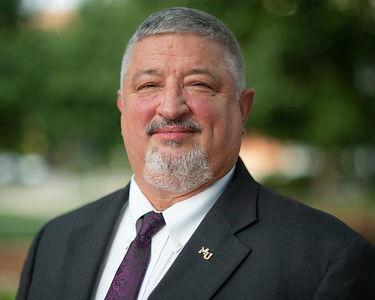Dampier named dean of College of Engineering and Computer Sciences | News
HUNTINGTON — David A. Dampier, Ph.D., has been appointed as dean of the College of Engineering and Computer Sciences at Marshall University, effective July 3.
Dampier has served as interim dean for the past year and previously served as associate dean for research and a professor of computer science at Marshall.
“I am proud to be working with such a superb staff and faculty in the college,” Dampier said in a news release. “We have worked very hard this year to make the college more efficient and strengthen our core capabilities. We have increased our research expenditures and publications. In the future, we look to continue to streamline our programs and grow our student body at both undergraduate and graduate levels. This includes proposing a new doctoral program in engineering that will serve the entire college.”
According to the release, Jaime R. Taylor, provost and senior vice president for academic affairs, met with the college’s associate dean and chairs and requested input from the faculty, who showed overwhelming support to Dampier’s appointment as permanent dean.
“I’ve been very pleased with Dr. Dampier since his appointment as interim dean of the College of Engineering and Computer Sciences (CECS) in August of 2020,” Taylor said in the release. “He has very quickly enhanced Marshall University’s relationship with Marshall alumni, local industry and several federal granting agencies. He has also positioned the college for further growth by collaborating with other colleges on strategic degree program development. It has always been clear to me that Dean Dampier’s desire is to do what is in the best interest of Marshall University and for the students and community it serves.”
Prior to joining Marshall in July 2019, Dampier was the chairman of the Department of Information Systems and Cyber Security at the University of Texas at San Antonio and founding director of the Distributed Analytics and Security Institute at Mississippi State University. He has 70 peer-reviewed publications and more than $50 million in external funding.
Before higher education, he spent 20 years as an Army automation officer.
He has a Ph.D. in…



